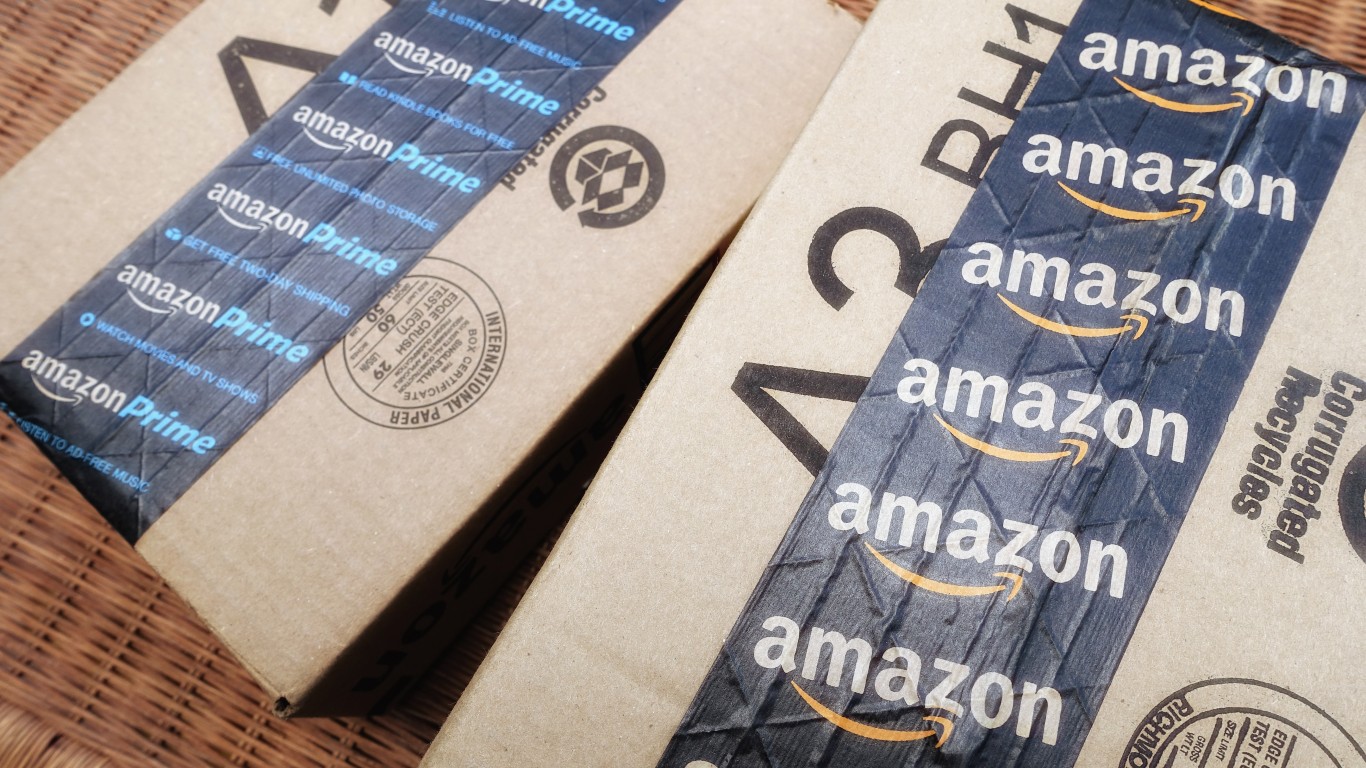

J.C. Penney Co. Inc.’s (NYSE: JCP) plans to reopen some store locations are looking a little less pretty. The Plano, Texas-based retailer is in a legal battle with long-time partner Sephora, which has threatened to pull its 660 in-store cosmetics shops. As the only makeup seller operating in Penney’s locations, Sephora’s withdrawal would be a big loss.
J.C. Penney stock dropped 0.91% in Monday trading. Sephora is a unit of luxury-goods brand LVMH Moet Hennessy Louis Vuitton, which was down 1.88%. The Paris-based LVMH bought American luxury powerhouse Tiffany & Co. late last year for about $16.2 billion.
Long Partnership in Jeopardy
Sephora has been the exclusive cosmetics provider for J.C. Penney since 2009, but the relationship has recently soured. A Texas state court last week granted J.C. Penney a temporary injunction that would keep its Sephora counters open. But Sephora countersued, moving the case to a federal court.
J.C. Penney contends Sephora is threatening to close the counters in a bid to shorten the length remaining on their contract, which runs for another four years. Local newspaper The Dallas Morning News reports that insiders believe the deal has been beneficial to both parties. “It’s been a strong revenue stream that fueled Sephora’s growth efforts. The luxury beauty brand was able to reach suburban and small town shoppers without the big expense of operating free-standing stores.”
In its lawsuit, J.C. Penney said, “Sephora has no right to demand an early exit from the parties’ contract” which would “cause immediate and irreparable harm to JCP—which depends on Sephora as its only beauty partner and could not obtain a new beauty partner without reasonable lead time.”
Sephora responded in a statement: “Although this is a sudden and unfortunate development, we are hopeful of continuing discussions and reaching an amicable agreement for both Sephora and J.C. Penney.” Penney wants to resolve the issue soon as it hopes to reopen locations in the coming weeks. JCP closed its stores on March 18 due to COVID-19, but some states and local jurisdictions are now allowing retailers to open again.
Sephora also notes that its own standalone stores remain shuttered. The chain closed all of its own outlets in the U.S. and Canada on March 17, with an initial plan to reopen on April 3. But the company extended the closures indefinitely. “They will now remain closed until we can responsibly welcome back clients and staff, based on guidance from public health authorities,” Sephora said in a statement. The chain laid off over 3,700 temporary and seasonal workers last month, leaving about 9,000 workers on the payroll.
Conflict Reflects Changing Nature of Retail
America’s department stores are in trouble, with the growth of online shopping only boosted by the coronavirus pandemic, which forced most stores and shopping malls to close. Even before the coronavirus, Sephora was looking to shift away from malls, which have been stung by permanent closings of some anchor tenants, including J.C. Penney and Sears Holding Corp.
In February, Sephora announced it would be opening 100 new stores, focusing on local real estate and away from department store chains. “There’s no doubt that there’s a trend toward more local shopping destinations,” said Jeff Gaul, a senior vice president at Sephora. “This year, clients can expect to see more Sephora stores not only in malls and high-traffic shopping centers, but also closer to home.”
Some of these new locations were also expected to be smaller versions of the typical Sephora outlet. But it’s unclear how the pandemic will impact these long-term plans.
The pandemic lockdown has made Americans even more reliant on online shopping and home delivery, which has especially benefited Amazon.com Inc. (NASDAQ: AMZN) and Walmart Inc. (NYSE: WMT). Will consumers flock back to brick and mortar stores once the lockdown ends?
COVID-19 Uncertainty Lingers Over Retail Space
As some states cautiously re-open or partially re-open after forcing many retail businesses to close, governments, economic analysts, and medical professionals are watching closely. Will consumers actually return to shopping, or will lingering fears about the virus dampen shopper traffic? If virus cases rebound, will states be forced to shut down again?
And how will the ballooning unemployment numbers impact consumer spending? Forecasters predict that April’s jobless numbers, to be released Friday, could show unemployment at 16% or higher. And the consumer confidence index plunged from 118.8 to 86.9 in April, the lowest level seen since 2014.
These are dilemmas that retailers such as J.C. Penney and Sephora are contemplating every day. Retail sales dropped 8.7% in March, the biggest decline recorded. Clothing stores were hit especially hard, seeing sales drop by half, according to the U.S. Commerce Department. Some expect the April market data to be worse, since stores were still open for the first part of March.
Some retailers are keeping afloat with online sales, often boosted by deep discounts. This has led to conflicts with workers concerned about their safety while packing non-essential items such as cosmetics and luxury goods. There have even been strikes by warehouse and delivery workers at Amazon, online grocers, and other e-commerce brands.
It seems clear that some will not survive this crisis. Many chains carry heavy debt loads.
On Monday, J.Crew Group became the first U.S. retailer to file for bankruptcy since the pandemic began. The company said the restructuring, which clears about $1.7 billion in leveraged buyout debt, would allow it to continue normal operations. “As we look to reopen our stores as quickly and safely as possible, this comprehensive financial restructuring should enable our business and brands to thrive for years to come,” said CEO Jan Singer.
Others may not survive. Among the troubled retailers being watched by Wall Street: J.C. Penney, Sears, Neiman Marcus, Gap Inc., Ascena Retail Group, Land’s End, Tailored Brands and Brooks Brothers.
Essential Tips for Investing: Sponsored
A financial advisor can help you understand the advantages and disadvantages of investment properties. Finding a qualified financial advisor doesn’t have to be hard. SmartAsset’s free tool matches you with up to three financial advisors who serve your area, and you can interview your advisor matches at no cost to decide which one is right for you. If you’re ready to find an advisor who can help you achieve your financial goals, get started now.
Investing in real estate can diversify your portfolio. But expanding your horizons may add additional costs. If you’re an investor looking to minimize expenses, consider checking out online brokerages. They often offer low investment fees, helping you maximize your profit.
Thank you for reading! Have some feedback for us?
Contact the 24/7 Wall St. editorial team.
 24/7 Wall St.
24/7 Wall St.


